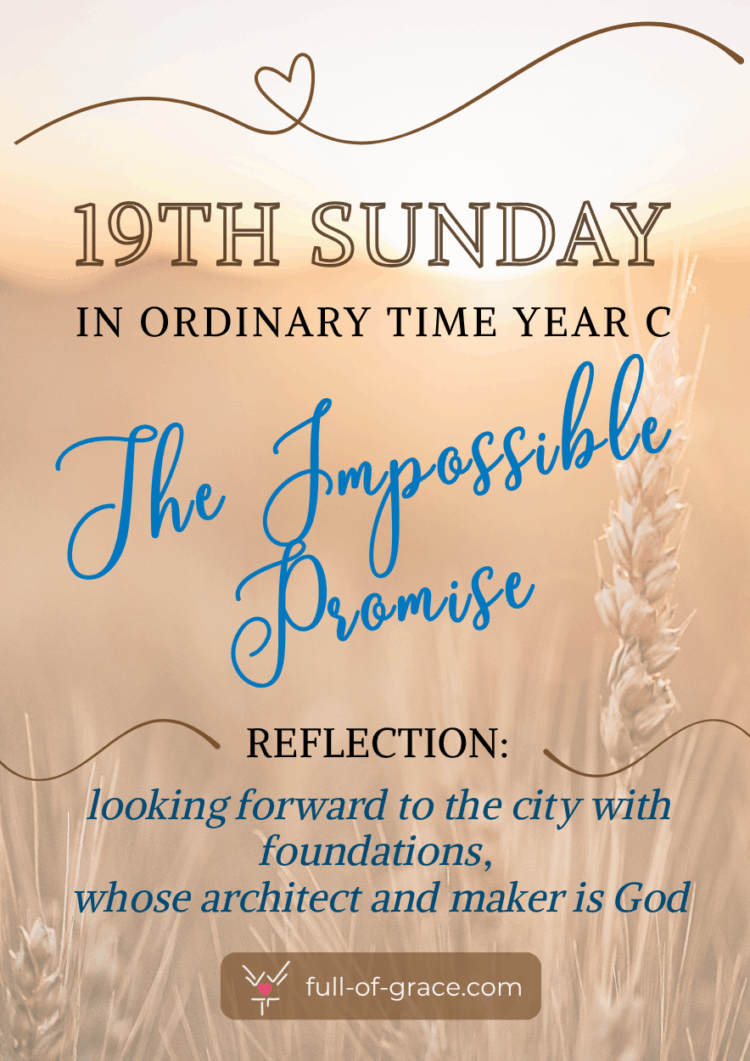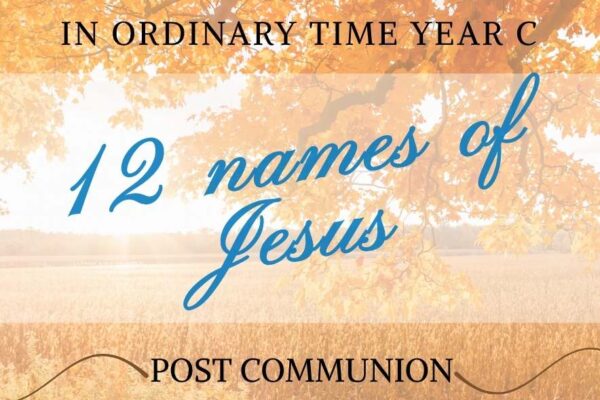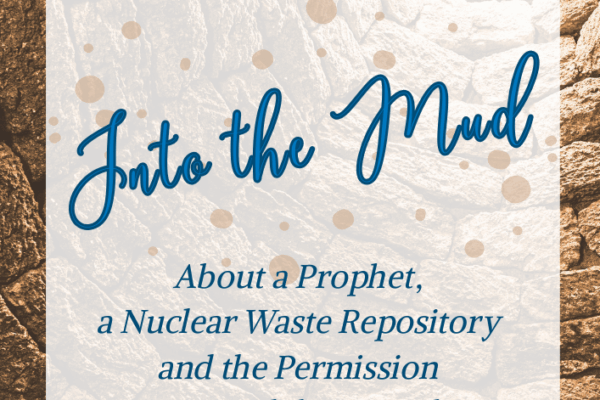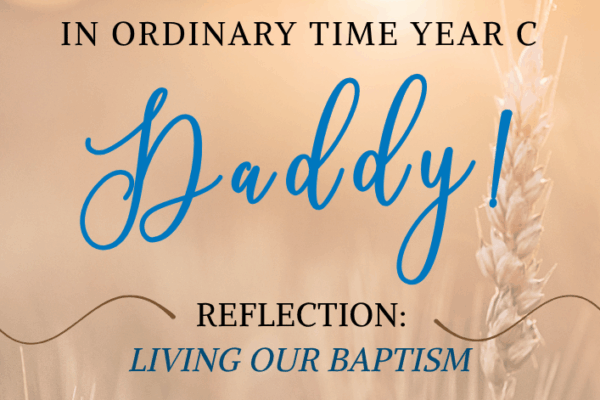A Reflection for the 18th Sunday in Ordinary Time Year C
There are crossroads in this world that even biblical fathers never dared to leave behind, purposedly settling down between grief and abundance. We also may get stuck halfway to heaven, camping at intersections of performance and grace, oscillating between trying too hard and not trying at all. And yet this Sunday maps out the invisible path from a simple tent to the Promised Land, from a morgue to a feast, from sacrifice to fulfilment.
Fifty Shades of Scripture
Last Sunday’s exploration of the first biblical murder mystery had ignited such curiosity in me that by evening, I found myself sneaking ahead into the coming week’s readings. Like a child prowling the house for hidden Christmas presents, I couldn’t resist the anticipation.

I discovered pure enchantment. The first reading and psalm felt like stumbling upon treasures in a forgotten attic—words cascading across my consciousness like fireworks against a dark sky: trust, courage, glory, joy, praise, loyalty, happiness, chosenness, hope, rescue, life, help, shield, and above all, love. Each phrase offered a different flavor of sweetness, and I found myself savoring them like scoops of ice cream, tasting the richness without lingering too long on any single note.
Abraham’s story in the second reading elevated me higher still—this man who could recognize the promised land while others saw only canvas and tent poles. I was genuinely intoxicated by Scripture itself.
CSI: Gospel
Then the Gospel struck without warning, and all warmth vanished. Suddenly I was waking in a sterile morgue—abandoned, disoriented, afraid. That harsh fluorescent light seemed to expose my every inadequacy, every failure. I sat on the edge of what felt like my own deathbed, bare feet about to touch the cold floor of spiritual shortcoming.
So I set aside my fear and called upon the Holy Spirit to help me understand how these jarring readings could possibly belong together. And again I felt enveloped by divine presence, as if gentle hands had cupped my face and placed a tender kiss upon my forehead.

“Do not be afraid, little flock.”
The Gospel’s opening phrase resonated through my entire being. Such tenderness in that address—”little flock.” I heard genuine reassurance and took a deep breath in the Spirit. Though I felt like death itself, perhaps there was no need for terror.
After all, spiritual death might be the perfect starting point for authentic faith.
The Biblical Walking Dead
The second reading describes Abraham as “good as dead” when his faith journey reached fruition. Examining his background reveals just how accurate that assessment was.

At seventy-five, Abraham faced what appeared to be complete hopelessness. He and Sarah remained childless after decades of marriage, caring instead for Lot, the orphaned son of Abraham’s deceased brother. Abraham found himself suspended between prosperity and profound grief, living at the crossroads his father Terah had created but never resolved.
Terah had initiated this very journey toward the promised land but never completed it. Rabbinic tradition reveals that Terah, deeply involved in idolatry and overwhelmed by grief over his son Haran’s death, had “purposely settled” at that crossroads city—itself named like his lost child. Terah remained trapped there, gazing constantly at his sorrow, the city’s name a perpetual reminder of what he’d lost. Prosperity mixed with unresolved grief, abundance shadowed by spiritual emptiness.
This was Abraham’s inheritance: a life suspended between material success and existential despair.
The Impossible Promise
Despite this deathly backdrop, when God appeared with the audacious promise that this elderly, childless couple would become a great nation—a promise that bordered on the absurd—Abraham abandoned Haran’s crossroads forever.
The journey that followed tested every assumption about divine timing. Shechem, famine, the dangerous flight to Egypt where Sarah’s beauty endangered them all. The separation from Lot, followed closely by the military rescue mission, Melchizedek’s mysterious recognition. Sarah’s growing doubt about her place in God’s plan led to the Hagar arrangement and Ishmael’s birth. Then came the name changes—Abram to Abraham, Sarai to Sarah—and God’s specific promise at Mamre: “One year from now, you will have your son.”
The destruction of Sodom and Gomorrah. Lot’s escape and that horrific aftermath with his daughters.
Twenty-five years stretched between the initial promise and Isaac’s birth. A quarter-century of holding onto hope that must have felt increasingly foolish with each passing season.
Even Isaac’s arrival didn’t signal happily ever after. God’s request for Isaac’s sacrifice meant the ground was still shifting beneath Abraham’s feet.

Bait and Switch?
I invite you today to view that terrifying moment with different lenses—not because the father-son dimension isn’t crucial (it deserves its own deep reflection), but because focusing on child sacrifice here would take us away from what these readings are actually revealing about promise and sacrifice. Instead of seeing Isaac primarily as Abraham’s beloved son, consider him as the key to promise fulfillment. God had declared, “I will make you into a great nation.” After twenty-five years of waiting, Isaac represented the only possible pathway to that promise’s realization.
When God asked for Isaac back, he was essentially asking Abraham to surrender the key to everything he’d been promised. Imagine selling your home, packing your life, traveling across continents toward a dream house, arriving at the gate with keys in hand—only to have the seller say, “Actually, I need those keys back” (after he cashed your check).
This perspective reveals the crucial aspects of Abraham’s character. Throughout his story, whenever God made requests—leave your country, circumcise yourself and your household, surrender your son—Abraham responded with immediate obedience. “Whatever you say.” The only time Abraham negotiated with God was when interceding for Sodom and Gomorrah—when others’ welfare was at stake, never his own.
Abraham had learned to live with such complete trust that from his simple tent, he could perceive the eternal city God was building.
The Underground Sacrifice Society
Building upon an individual’s experience, The Book of Wisdom reminds us that we’re all called into the promised land. The reading convinces us that certain promises and moments in salvation history require active remembrance. We must continually recall God’s promises so that in crucial moments, we remember our identity as called, chosen, beloved people who can take courage and celebrate divine faithfulness.

Yet both Abraham’s example and Wisdom point toward an inescapable connection between God’s promises and sacrifice. The text speaks of those who “offered sacrifice in secret”—not the external rituals that draw attention, but the hidden surrenders that mark authentic spiritual life. Abraham’s entire journey represents one continuous movement between sacrifice and fulfillment.
Each Sunday, I encounter this same dynamic. Yet most weeks, I fixate on entirely the wrong sacrifice, trapped in what I’ve come to recognize as the combat zone between my inner Cain (who attempts to earn God’s favor through performance) and my inner Abel (who hopes to coast on grace alone).
When Preparation Fails
When my Cain consciousness dominates, I pour excessive energy into liturgical preparation—crafting slides, selecting music, helping create meaningful worship experiences. Afterward comes that subtle satisfaction: “Look what I’ve accomplished for God.” The spiritual pride feels almost holy, disguised as humble service.
But when I swing toward Abel consciousness, adopting a more casual approach that sometimes includes skipping Sunday Eucharist entirely, I become like the drowsy servant Jesus describes—the one who falls asleep and misses the master’s return altogether.

This pendulum exhausts me spiritually and emotionally. I recognize the call to readiness, to celebration, to meaningful participation in the sacred mystery, yet somehow I keep missing the very encounter I’m supposedly preparing for.
The Gospel’s imagery of vigilant servants began troubling me deeply. Jesus speaks of servants maintaining alertness through the second and third watches of the night, waiting for their master’s return from a wedding celebration. But ancient wedding festivities could extend for days. The expectation seems impossibly demanding for finite human beings.
Uncomfortable questions emerged: Are these expectations achievable? We possess physical limits, emotional capacity constraints, spiritual attention spans that inevitably waver. No one can sustain perfect vigilance indefinitely. We grow tired, distracted, discouraged. Our best intentions fade under pressure.
Gradually, a disturbing realization crystallized: perhaps my lack of spiritual stamina wasn’t the real problem. Perhaps the entire framework of servant consciousness itself was flawed. When we approach God primarily as employees trying to earn our keep, attempting to prove worthiness through spiritual performance, failure becomes mathematically inevitable.
We exhaust ourselves pursuing adequacy—prepared enough, vigilant enough, worthy enough—but “enough” remains perpetually elusive. The servant model traps us in cycles of performance anxiety that bear no resemblance to authentic relationship.
Served by The Boss
Then I noticed something that Jesus doesn’t really say what I expected him to say. Let us look carefully at his actual words: “Blessed are those servants whom the master finds vigilant on his arrival. (…) Amen, I say to you, he will gird himself, have them recline at table, and proceed to wait on them.”
The master doesn’t reward faithful servants with additional responsibilities or harder tasks. Instead, he removes his outer garment, ties on an apron, seats them at his own table, and serves them personally. The vigilant become the honored. The servants become the served.

This isn’t metaphorical decoration. Jesus is revealing the fundamental truth about our relationship with God. We exhaust ourselves trying to serve God adequately, attempting to bring worthy offerings, striving to prove our usefulness as spiritual employees. But Jesus announces: “Stop trying to serve me perfectly. Instead, prepare to let me serve you.”
The waiting wasn’t about demonstrating worthiness through endurance. The vigil was about remaining present enough, awake enough, to receive what God intended to offer all along—friendship, nourishment, God very self.
Gracing God with presence
This revelation reconfigures everything about Eucharistic participation. For years, I’ve operated under the assumption that my spiritual preparation, liturgical contributions, and personal worthiness determine the quality of my encounter with God. But that approach springs from servant consciousness—and we’ve established that servant consciousness leads inevitably to exhaustion.
Regardless of my efforts, if I approach the altar focused primarily on the sacrifice I’m bringing, if I harbor the subtle sense that I’m “gracing God with my presence,” I completely miss the sacrifice Jesus is offering. I become so absorbed in polishing my spiritual performance that I can’t receive what he’s actually providing.
The bread we encounter at Mass exists beyond anything we could discover in Haran—beyond the crossroads of religious achievement and spiritual grief, transcending all the liturgical preparations we might offer. Jesus himself represents the difference between tent-dwelling (temporary, provisional, always anticipating something better) and promised-land living (complete, satisfying, eternally fulfilling).
Divine presence transforms ordinary daily bread into the bread of eternal life. No matter how exquisite the bread we bring to Sunday’s altar, regardless of our investment in spiritual preparation, our offerings cannot compare to what God creates through his own presence. We’re not called to compete with divine generosity—we’re invited to receive it with open hands.

Give us today…
This becomes our invitation: abandon the marketplace of spiritual achievement for the sake of eternal life. Recognize the promise that has already been spoken over us. Acknowledge the light perpetually ready to illuminate our lives.
As we learned in previous weeks to address God as Abba, the ever-loving Daddy, we can confidently pray for our daily bread—not because we’ve earned it, but because we’ve been invited to the family table.
God, you often seem distant, inhabiting spaces my mind can barely reach, hidden beyond countless crossroads and choices, invisible behind the silver layer that transforms windows into mirrors reflecting only myself. Yet some whisper that no one is too old, too dead, too outcast to encounter you. You took flesh to draw near. You concealed yourself in bread so I might touch you. Set my heart ablaze with hunger for your presence, with appetite for your life. Hold me as intimately as only bread can when it meets my tongue, as close as the very air I breathe. Help me recognize your friendship and guide my soul into eternal friendship with you. Amen.










One thought on “The impossible promise and Insomniac servants – journeying from the crossroads to the Promised Land.”